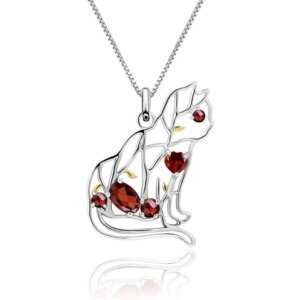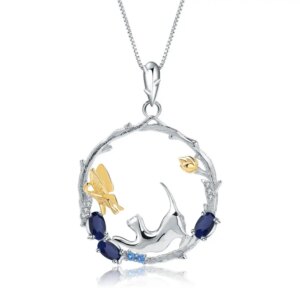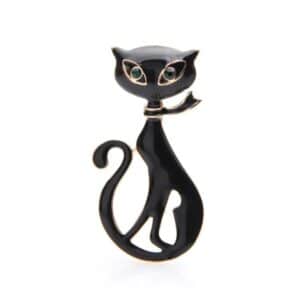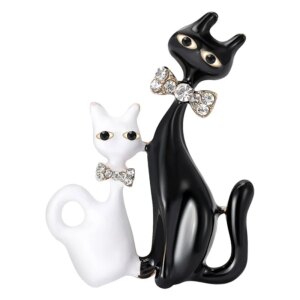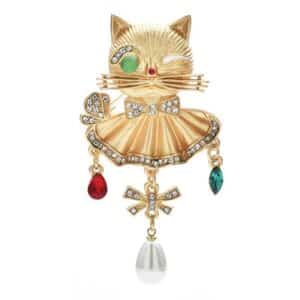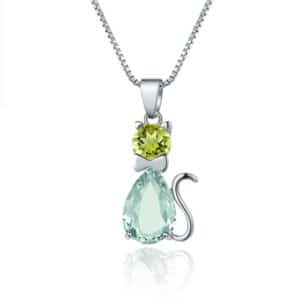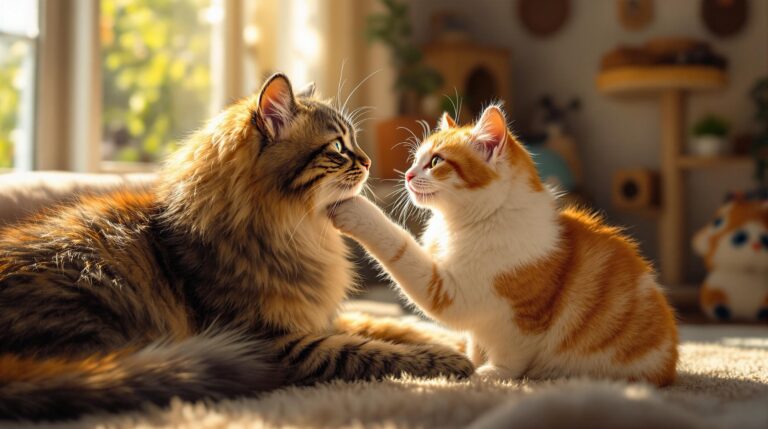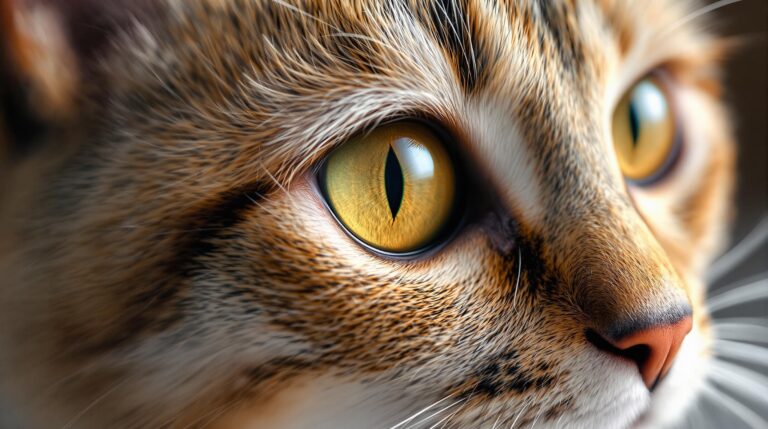Cats Crying, at Cat Karma Creations, we know that cats are known for their unique vocalizations, but when they start crying excessively, it can be a cause for concern. This article delves into the various reasons why cats cry, from seeking attention to experiencing pain. We’ll explore common causes, solutions, and when to seek veterinary help. By the end, you’ll have a better understanding of your cat’s behavior and how to address it effectively.
Why Do Cats Cry
Attention-Seeking Behavior
One of the most common reasons why cats cry is to seek attention. Cats are social animals and often meow to communicate with their human companions. If your cat is frequently meowing and following you around, it might be trying to get your attention for playtime, food, or affection.
To manage this behavior, it’s important to use positive reinforcement. Reward your cat for good behavior, such as sitting quietly or playing calmly. Interactive play sessions and scheduled feeding times can also help reduce excessive meowing.
Signs of Pain or Discomfort
Cats may cry when they are in pain or discomfort. Persistent crying, especially if accompanied by hunched posture, reluctance to move, or other physical symptoms, can be a sign of an underlying medical issue. Common causes include injuries, infections, and dental problems.
If you suspect your cat is in pain, it’s important to seek veterinary attention. A vet can diagnose the issue and provide appropriate treatment, which may include pain management, medication, or other interventions.
Emotional Distress and Anxiety
Cats can also cry when they are experiencing emotional distress or anxiety. Stress, fear, loneliness, and separation anxiety are common triggers for excessive vocalization. Cats may pace, hide, or lose their appetite when they are in distress.
To help your cat, create a safe and comfortable environment. Use calming aids like pheromone sprays or diffusers, and provide plenty of hiding spots and elevated perches. Regular playtime and mental stimulation can also reduce stress and anxiety.
Hunger and Feeding Schedules
Cats may cry when they are hungry or if their feeding schedule is inconsistent. Irregular meal times can lead to excessive meowing, especially if your cat is used to being fed at specific times.
To prevent this, establish a consistent feeding routine. Use timed feeders if necessary to ensure your cat is fed at the same times each day. Avoid overfeeding and consider using puzzle feeders to keep your cat mentally engaged during meals.
Boredom and Lack of Stimulation
Boredom can also be a reason why cats cry. Cats need mental and physical stimulation to stay happy and healthy. A lack of activity or interaction can lead to excessive vocalization and other behavioral issues.
Keep your cat engaged with toys, scratching posts, and interactive play sessions. Rotate toys regularly to keep them interesting, and consider setting up a window perch for your cat to watch birds or other outdoor activities.
Common Causes of Cats Crying
Medical Issues
Medical issues are a significant cause of cats crying. Injuries, infections, and dental problems can all lead to pain and discomfort, making your cat more vocal. Other medical issues, such as urinary tract infections or kidney disease, can also cause excessive meowing.
Regular veterinary check-ups can help identify and address these issues early. If you notice any changes in your cat’s behavior or physical condition, it’s important to consult a vet.
Environmental Factors
The environment in which your cat lives can also influence its behavior. Changes in the home, such as moving to a new house or the addition of a new pet, can cause stress and anxiety. Loud noises, unfamiliar smells, and other environmental factors can also trigger excessive meowing.
To create a comfortable environment, provide a quiet, secure space for your cat to retreat to. Use calming aids and maintain a consistent routine to help your cat feel more secure.
Behavioral Issues
Behavioral issues, such as attention-seeking behavior and separation anxiety, can also cause cats to cry. Cats may meow excessively to get your attention or to express their discomfort when left alone.
Behavioral training and positive reinforcement can help address these issues. Set clear boundaries and provide plenty of mental and physical stimulation to keep your cat engaged and content.
Dietary Concerns
Dietary issues can also contribute to cats crying. Cats may meow if they are hungry, if their food is not meeting their nutritional needs, or if they have food sensitivities. Poor diet can lead to various health issues, including obesity and digestive problems.
Consult with your vet to ensure your cat is on a balanced diet. Consider using high-quality cat food and treats, and monitor your cat’s weight and overall health.
Emotional Needs
Cats have emotional needs that must be met to prevent excessive meowing. Loneliness, boredom, and lack of affection can all cause cats to cry. Cats need social interaction, playtime, and mental stimulation to stay happy and healthy.
Spend quality time with your cat, provide interactive toys, and create a stimulating environment. Consider adopting a second cat if your cat is lonely, but ensure they get along well to avoid additional stress.
Solutions and Tips for Managing Cats Crying
Positive Reinforcement and Training
Positive reinforcement and training are effective methods for managing cats crying. Reward your cat for good behavior, such as sitting quietly or playing calmly. Use treats, praise, and playtime as incentives to encourage desired behaviors.
Consistency is key when training your cat. Set clear boundaries and reinforce them regularly. Avoid punishing your cat for meowing, as this can lead to fear and anxiety.
Creating a Comfortable Environment
A comfortable environment is essential for reducing stress and anxiety in cats. Provide a quiet, secure space for your cat to retreat to, and use calming aids like pheromone sprays or diffusers. Ensure your cat has access to hiding spots, elevated perches, and cozy bedding.
Maintain a consistent routine to help your cat feel more secure. Feed your cat at the same times each day, and establish a regular playtime schedule.
Regular Veterinary Check-Ups
Regular veterinary check-ups are crucial for identifying and addressing any health issues that may be causing your cat to cry. A vet can diagnose and treat medical conditions, such as infections, injuries, and dental problems.
Schedule annual check-ups and discuss any concerns with your vet. Early intervention can prevent more serious health issues and reduce the need for extensive treatment.
Mental and Physical Stimulation
Mental and physical stimulation are important for keeping your cat happy and healthy. Provide a variety of toys, scratching posts, and interactive play sessions to keep your cat engaged. Rotate toys regularly to prevent boredom, and consider setting up a window perch for your cat to watch birds or other outdoor activities.
Encourage playtime and physical activity to help your cat burn off energy and reduce stress. Interactive toys and puzzle feeders can also provide mental stimulation.
Establishing Routines
Establishing a consistent routine can help reduce excessive meowing in cats. Feed your cat at the same times each day, and establish a regular playtime schedule. Consistency can help your cat feel more secure and reduce anxiety.
Set clear boundaries and reinforce them regularly. Provide a quiet, secure space for your cat to retreat to, and use calming aids to help reduce stress and anxiety.
When to Seek Veterinary Help
Persistent Crying
If your cat is crying persistently, it may be a sign of an underlying issue. Persistent meowing, especially if accompanied by other symptoms, can indicate pain, discomfort, or stress. If the behavior continues despite your efforts to address it, it’s important to seek veterinary help.
A vet can diagnose the issue and provide appropriate treatment. Early intervention can prevent more serious health issues and reduce the need for extensive treatment.
Changes in Behavior
Changes in your cat’s behavior can also be a cause for concern. If your cat suddenly starts meowing more frequently or exhibits other unusual behaviors, it may be a sign of an underlying issue. Changes in appetite, energy levels, or litter box habits can also indicate a problem.
Monitor your cat’s behavior and physical condition closely. If you notice any changes, consult a vet for a thorough examination.
Physical Symptoms
Physical symptoms, such as lethargy, vomiting, diarrhea, or difficulty breathing, can be signs of a serious health issue. If your cat is crying and displaying these symptoms, it’s important to seek veterinary help immediately. These symptoms can indicate a range of conditions, from infections to organ failure.
A vet can diagnose the issue and provide appropriate treatment. Early intervention can improve your cat’s prognosis and reduce the risk of complications.
Emergency Situations
In some cases, excessive meowing can be a sign of an emergency situation. If your cat is in severe pain, having difficulty breathing, or exhibiting other life-threatening symptoms, it’s important to seek immediate veterinary attention. These situations require prompt intervention to ensure your cat’s safety and well-being.
Contact your vet or an emergency animal hospital if you suspect your cat is in distress. Follow the vet’s instructions and provide any necessary information about your cat’s condition.
Popular Quote
“A cat has absolute emotional honesty; human beings, for one reason or another, may hide their feelings, but a cat does not.”
— Ernest Hemingway
Statistical Fact
According to a study published in the Journal of Feline Medicine and Surgery, approximately 70% of cat owners report that their cats exhibit some form of excessive vocalization. This statistic highlights the prevalence of the issue and underscores the importance of understanding and addressing the underlying causes. (Source: Journal of Feline Medicine and Surgery, 2021)
Three Tips for Managing Cats Crying
- Establish a Routine: Cats thrive on consistency. Set regular feeding and playtimes to help your cat feel more secure and reduce anxiety.
- Provide Mental Stimulation: Interactive toys, puzzle feeders, and regular play sessions can keep your cat mentally and physically engaged, reducing boredom and excessive meowing.
- Seek Veterinary Advice: If your cat’s crying persists or is accompanied by other symptoms, consult a vet. Early diagnosis and treatment can prevent more serious health issues.
Popular Questions
Why is my cat meowing so much?
Excessive meowing can be a sign of attention-seeking behavior, pain, or anxiety. Observe your cat’s behavior and environment to identify the cause and address it accordingly.
How can I stop my cat from crying at night?
Ensure your cat has a comfortable sleeping area, provide evening play sessions to tire them out, and establish a consistent bedtime routine. If the behavior continues, consult a vet to rule out any underlying health issues.
Is it normal for cats to cry?
While some meowing is normal, excessive or persistent crying can indicate a problem. Pay attention to the frequency and context of your cat’s vocalizations to determine if there is a need for concern.
What should I do if my cat is in pain?
If you suspect your cat is in pain, seek veterinary help immediately. A vet can diagnose the issue and provide appropriate treatment, which may include pain management and medication.
Final Thoughts About Cats Crying
Understanding why cats cry is crucial for their well-being. By recognizing the signs and addressing the underlying issues, you can ensure your cat remains happy and healthy. If you’re unsure about your cat’s behavior, don’t hesitate to consult a veterinarian. For more information on cat care and unique cat-themed gifts, visit Cat Karma Creations.
Remember, a well-cared-for cat is a happy cat. By providing a comfortable environment, regular veterinary check-ups, and plenty of mental and physical stimulation, you can help your cat thrive. If you have any questions or concerns, feel free to reach out to Cat Karma Creations for additional resources and support.
If you’re looking for the perfect gift for a cat lover, consider our cat-themed jewelry. Our collection includes beautiful necklaces, bracelets, earrings, and rings, all crafted with high-quality materials and unique designs. You can also explore our nature-inspired pieces, which blend the beauty of nature with the charm of cats.
For further assistance or to place a custom order, feel free to contact us at info@catkarmacreations.com or call us at (800) 343-1604. We’re here to help and support you in every way possible.

